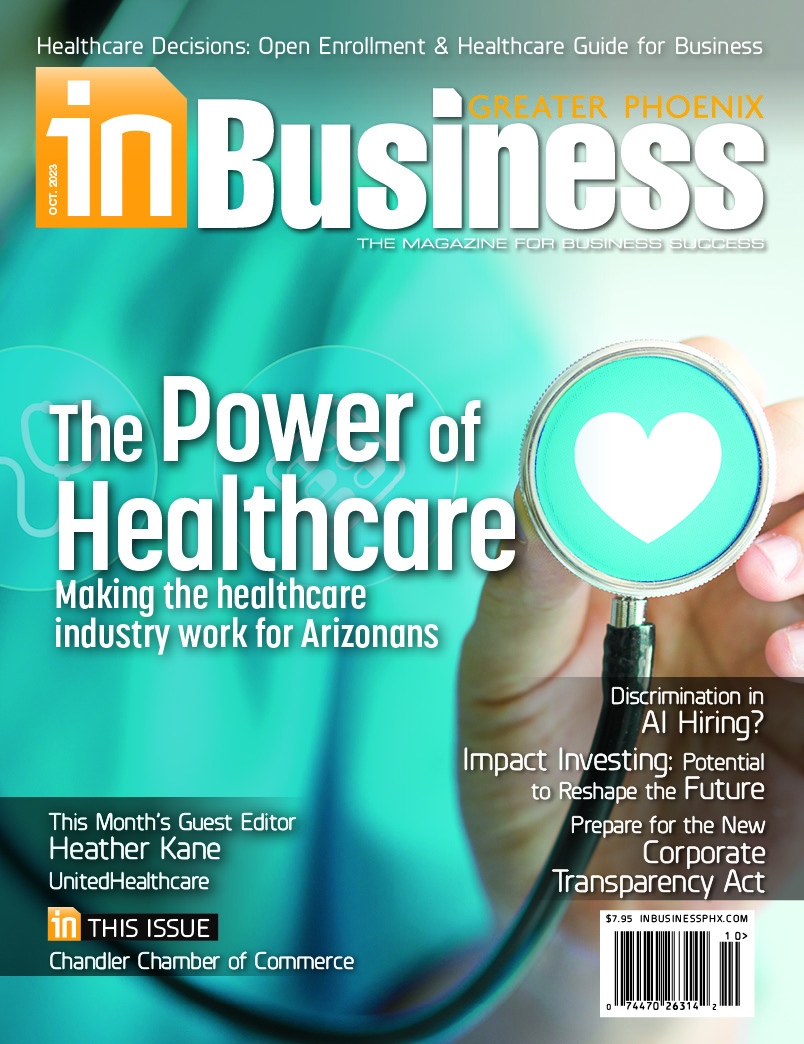
The Tax Cuts and Jobs Act was passed in December. As with any law, there are the specified rules and regulations that are written into it as well as impact that extends from those rules and regulations. But Austin Graff, an accountant with Schwartzer Tax and Accounting, notes the key effects of the Tax Cuts and Jobs Act will depend in large part on how the business is structured. The centerpiece of the legislation is the tax rate reduction for C corporations, which impacts major corporations, cutting the tax rate from 35 percent to 21 percent. “A lowered tax burden should allow these companies to increase the wages of their employees and make additional capital investments in their businesses,” observes Phillip R. McCollum Jr., a C.P.A. and J.D. with Henry & Horne.
And a new construct that the TCJA introduced is the Qualified Business Income deduction. Pass-through entities such as S corporations and LLCs will benefit from this deduction, which effectively permits these businesses to be taxed on 20 percent less of their income. Along with that, the TCJA has reduced the top tax rate for individuals from 39.6 percent to 37 percent — which figures into business calculations because many small to mid-sized businesses operate as limited liability companies taxed as partnerships, S corporations or sole proprietorships, meaning that the business income is reported on the tax return of their owners and taxed at individual tax rates, explains Bahar Schippel, an attorney with Snell & Wilmer. “As a result of these changes, the tax rate for many small businesses has been reduced by about 10 percent,” she says.
“Manufacturing, engineering and retail businesses will benefit greatly from many changes coming their way, while professional service providers like doctors, lawyers and accountants will have different limitations on how much of the new law they can benefit from,” Graff says. For instance, McCollum expects the more favorable depreciation rules to help manufacturing companies who make capital investments on equipment. Professional services businesses — physicians, lawyers, accountants, consultants, et cetera — conducted through pass-through entities are generally not treated as well as businesses selling or producing goods and products with respect to the 20-percent deduction against business income, explains Crystal Howard, a tax attorney with Spencer Fane, adding that the 20-percent deduction is phased out for these professionals whose taxable income exceeds $315,000 (joint return) or $157,500 (single return). “Those highly profitable non-professional service businesses which have employees and/or business assets have a better chance of getting the full 20-percent deduction than those which have few employees and little assets,” says Howard.
A positive for small businesses (less than $25 million in receipts) that Howard points out is, they are exempt from the new rule that limits the deduction for business interest expense to 30 percent of adjusted taxable income. Additionally, the TCJA has simplified some of the accounting rules for small and mid-sized businesses, and Schippel notes this will reduce administrative costs associated with such accounting methods.
While Schippel observes that the ability of businesses to immediately expense capital investments has substantially improved, she notes the existing rules with respect to expensing for small businesses were already fairly liberal, and so the new expensing rules impact mid-sized businesses more than small businesses. The rates for Long Term Capital gains, however, stayed the same at 0 percent, 15 percent and 20 percent, dependent on the business’s taxable income, Graff points out. “While the law is still being dissected and studied by the private market, it’s hard to tell which investment strategies will prevail as the current winners of the tax reform,” Graff says.
“On the other hand,” Schippel says, “the ability of businesses to write off certain expenses has been reduced or eliminated. For example, businesses can no longer write off any portion of their client entertainment expenses. As a result, many businesses may reduce their client entertainment activities.” She points out a reduction in such activities will heavily impact businesses such as Top Golf that derive a substantial part of their income from corporate entertainment activities.
Schippel’s analysis also looks at the potential impact on other areas of business: startups, inventors, housing and nonprofits.
Previously, instead of paying taxes in their first few years of becoming profitable, small businesses were able to, instead, carry forward their losses from earlier years. The TCJA contains numerous changes that affect the ability of businesses and business owners to take losses, one of the main ones being that a business generally cannot offset more than 80 percent of its current year taxable income with prior year losses. These businesses will now have to pay tax on at least 20 percent of their income when they become profitable. Also, she notes, the new law reduces the ability of businesses to write off research and development expenses. “This means that an early-growth business may have taxable income even if all of its earnings are reinvested in research and development.”
Inventors will, on the whole, feel a negative impact. Although there is an exception that allows certain sales of patents to qualify for long-term capital gain, Schippel notes that, under the new law, inventors of patents, inventions, models, designs, secret formula or processes are no longer able to report gains from the sales of their inventions as capital gains.
“The housing industry may be impacted by the Tax Cuts and Jobs Act as a result of certain changes to the way in which individuals account for mortgage interest and property taxes,” Schippel says. Under the old rules, many individuals were able to reduce their taxable income by claiming mortgage interest as an itemized deduction. An individual may reduce taxable income by the greater of the individual’s standard deduction or his or her itemized deductions, which include such things as mortgage interest, state and local income and property taxes, and charitable donations. “The Tax Cuts and Jobs Act has doubled the standard deduction, meaning that many individuals will take the standard deduction versus itemizing. Without itemization, there is no benefit that results from mortgage interest deductions. As a result, the tax incentive for purchasing a home is no longer available for certain potential home buyers.”
Similarly, she points out, the TCJA places a cap of $10,000 on that amount of state and local income and property taxes that may be itemized, which, effectively, eliminates the ability of certain high-income households to deduct their property taxes. Additionally, the TCJA limits mortgage interest deductions on new mortgages to $750,000 of mortgage, down from $1 million under the old law. “This change may negatively impact housing prices for homes valued at more than $750,000.”
Schippel also believes the doubling of the standard deduction is likely to impact charitable giving. “For those individuals who will no longer itemize as a result of the doubling of the standard deduction, there is no longer any tax incentive to donate.”
Addressing the “Jobs” aspect of the TCJA, Graff says, “Historically speaking, employment rate does not correlate with changes in the tax code, as it is more dependent on supply-and-demand economics. We were already at historical lows in the unemployment rate before the tax reform passage, and there is nothing to suggest we should see that number increase or decrease greatly.” That’s not to say the potential does not exist. Says McCollum, “As time moves ahead and we see the impact on capital investment and the economy, the hope would be that businesses would expand and hire more employees.”














Speak Your Mind
You must be logged in to post a comment.